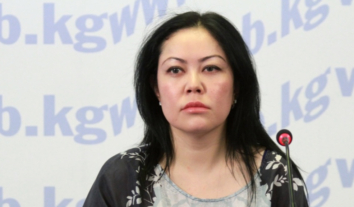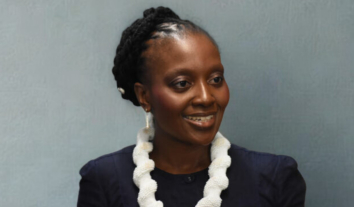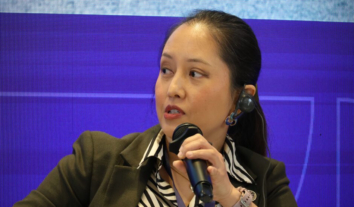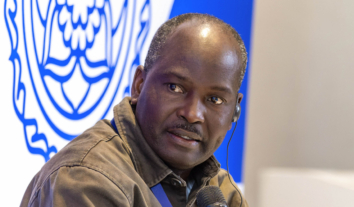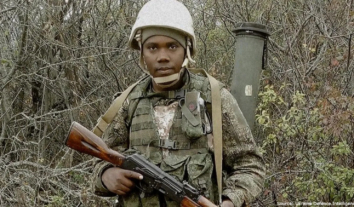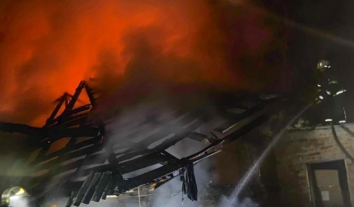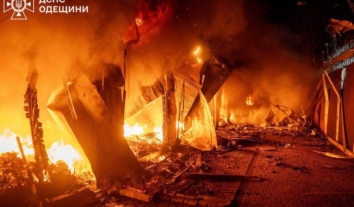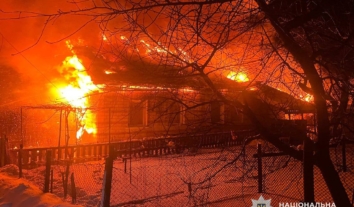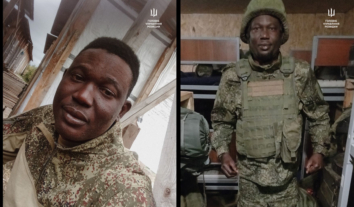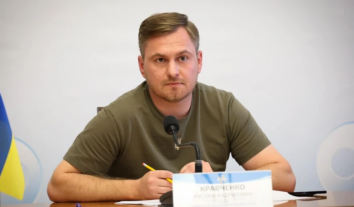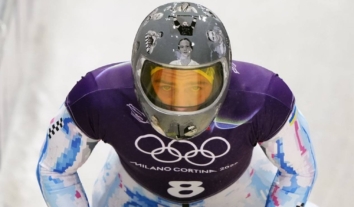At the border with the war
“Iro, you must cross the border at any cost,” my best friend pleaded.
I did not have to explain to her why even in Western Ukraine, I would still feel unsafe. Going to bed, I was wondering whether our windows would crack from rockets and the glass would fall onto the bed where my four year old daughter was sleeping. Every time a truck was passing by I shuddered, listening closely whether it was an airplane.
It was one of those times when decisions are made in a flash. While I can assess later if they were correct or not, protecting my child’s safety cannot wait. We were planning to cross the Romanian border, when a friend sent us information that the border with Slovakia is the fastest route. Thus, we head towards the Maly Berezny – Ubla checkpoint. On our way, we picked up two women headed to their homes in Western Ukraine and ended up staying the night at their house. As we approached Maly Berezny, we spotted a volunteer who directed traffic: “to Uzhhorod this way, to cross the border by car this line, to continue on foot get as close as possible to the gate.”
Near the border we were stopped again. I looked around: mostly women with small children, some young women, some older men. Younger men mostly bring their families and then turn back around.
Even for people like us who were there for the first time it was all intuitively clear: volunteers were directing all of the where’s and what’s.
On February 27th, the line of cars stretched for more than 5 kilometres (the figure I heard) and kept growing. The queue of pedestrians was moving slowly, but moving nonetheless. Where it was no longer possible to get by car, a bus would come for pick up.
My daughter Vlada, still thinking that this is “mommy’s and mine next vacation,” is bustling and curious. I, on the other hand, am seized by worry, my grandmother’s words about her first war ringing in my ears: “It was most important to stay together, not get separated. Families got lost otherwise…” Then, I say goodbye to my husband, not knowing when we will see each other again.
The bus is filled to the brim. A volunteer, as if playing Tetris, arranges bags, animal carriers, and helps passengers.
The queue of people trying to cross the border on foot is growing, but moving, which instils some optimism. On the tables alongside the queue, sandwiches are served, bogracs (Hungarian beef and pepper stew, transl.) and borsch are cooked in cauldrons, pancakes with jam distributed, as well as apples, cookies, yogurt, and hot tea. Food is abundant.
However, there is no sign for a public toilet in sight. There is nowhere to sit down and rest. While the queue is moving, the crowd is large and delays are to be expected. Many mothers are forced to change diapers on wooden pallets, or rest on them if a child falls asleep in their arms.
My daughter laid out her toys and organized a children’s corner. She gave a ride to a smaller girl on her scooter, laid out valuables from her backpack: a badge with her parents’ contacts (“This is if I get lost,” Vlada explains to the girl), and tells her about maracas (musical instrument in Caribbean and Latin music, transl.) from a recent trip.
While I understand that a border crossing is not the place for children’s entertainment, if there were volunteers who could help mothers at least a little bit, it would be much easier to wait for the unknown…
As soon as I approached the checkpoint, I noticed that there was only one window where documents were being checked. On the other hand, everything is moving much faster on the Slovak side of the border. Moreover, mothers with small children are hailed in as quickly as possible.
As soon as we were on the Slovak side of the crossing, we were met by volunteers who gave us loads of packages – food, water, toys – and took us to another bus. There are several such buses, and everyone takes their place: no one is standing or getting angry. Rather, we are all confused.
We were brought to a school converted into a makeshift refugee camp. There we find light, warmth, a place to spend the night, food, and internet. If you don’t speak the language, there is a volunteer to translate. As I am told, you can also find contact information: where to go next, where to find housing, etc.
This first encounter was warm, though a little intrusive. Several people asked me if I was hungry, and everyone tried to give my daughter gifts, even though her arms were already full.
I had a feeling of being in some kind of a parallel universe. Ten days ago, I was vacationing at a resort in the Dominican Republic and was able to rent a car and choose which restaurant to dine in with my family. Today I am homeless and depend on people around me. I even have to ask the family that adopted me for an extra T-shirt to finally sleep in clean clothing after three days of travel with breaks only to sleep.
Those with whom I managed to speak at the border are not so optimistic that the war will end soon. But they understand clearly that living next to a country at war is just as dangerous. Therefore, everyone has gathered their efforts to help the refugees. The same warm encounters are being reported from the borders of Romania and Poland.
Many ask how we are doing. I have an answer for them: we are fighting, the Ukrainian military is superb, and Ukrainians are strong and united. Therefore, victory is close!

